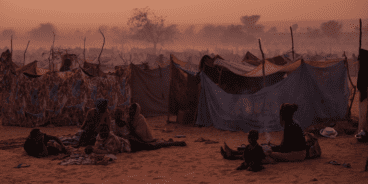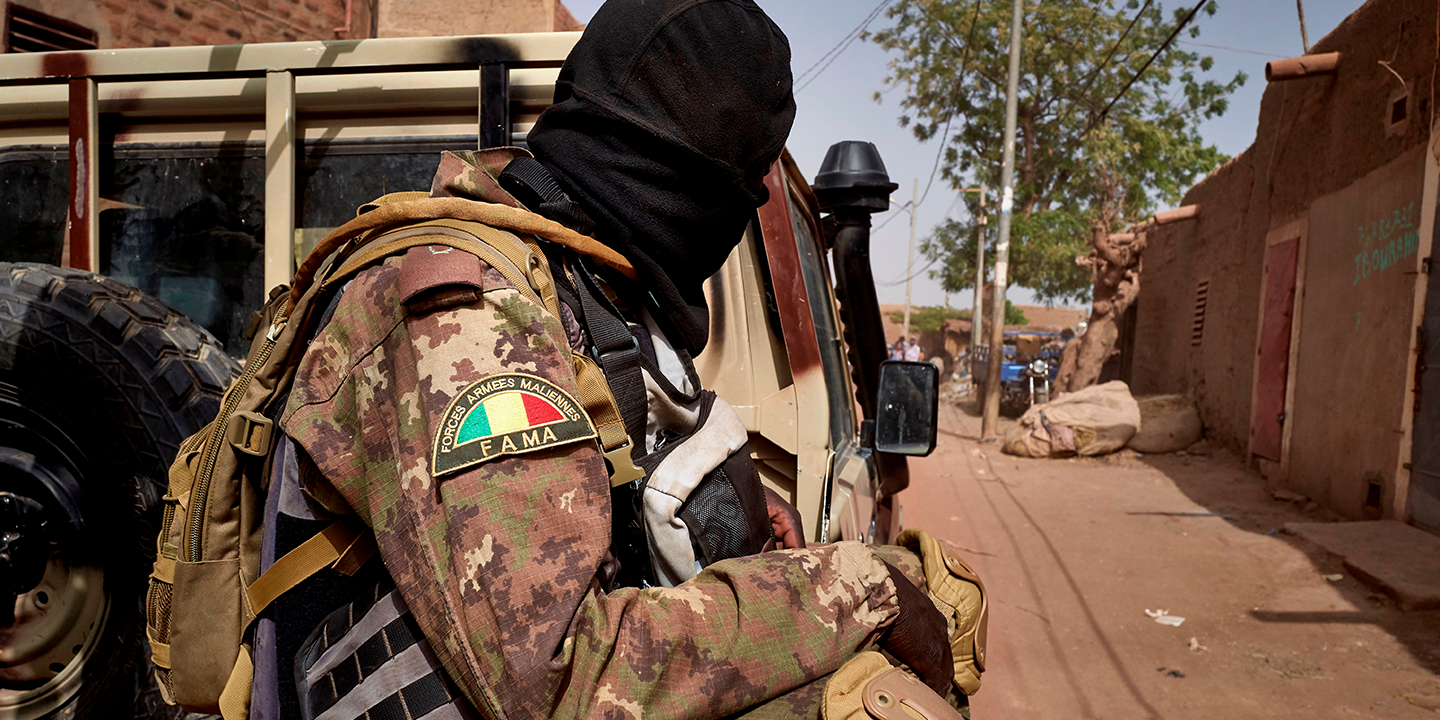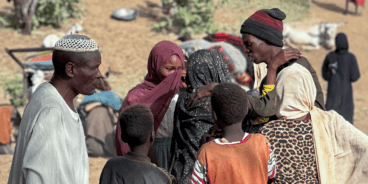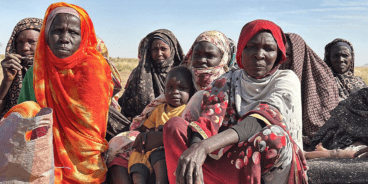

Atrocity Alert No. 207: Mali, Philippines, Democratic Republic of the Congo and the ICC
Atrocity Alert is a weekly publication by the Global Centre for the Responsibility to Protect highlighting situations where populations are at risk of, or are enduring, mass atrocity crimes.
Mali’s army accused of attacking villagers, killing 43
At least 43 civilians, mainly members of the ethnic Fulani community, were killed during attacks on two villages in the Mopti region of Mali last week. On 5 June armed men in military fatigues, presumed to be members of the Malian Armed Forces, raided Binedama, killing at least 29 civilians, including women and children, and torching homes. Two days earlier, 14 civilians were also killed in an attack on Niangassadiou. The Malian government requested investigators to examine whether the security forces committed these killings, warning of “sanctions matching the seriousness of these actions.”
Fulani villages in Central Mali have become a frequent target for security forces and local “self-defense groups” due to their perceived support for armed Islamist groups.
The latest killings occurred amid growing insecurity and popular discontent regarding the Malian government’s inability to stem violence in the Mopti region. Although armed Islamist groups and community militias are the primary source of the violence, government forces have also committed atrocities. The UN Secretary-General’s latest report on Mali documented 95 human rights violations committed by the armed forces, including 34 civilians being summarily executed and 53 others being forcibly disappeared in the Mopti and Ségou regions between 20 March and 2 June.
On 5 June the UN Security Council also discussed allegations of serious human rights abuses perpetrated by members of the Joint Force of the Group of Five for the Sahel (FC-G5S). Security forces from Niger, an elected member of the Council, are facing allegations of abuse and Niger previously postponed a Council meeting on the FC-G5S that was scheduled for May. During last Friday’s meeting, Jean-Pierre Lacroix, Under-Secretary-General for Peace Operations, stressed that “a stronger Joint Force is only part of a comprehensive international approach for the Sahel that includes improving governance, eradicating poverty and protecting human rights for all.”
The Malian government must ensure that an independent investigation is conducted and that those responsible for inciting, directing and committing the recent attacks are held accountable. It is essential that the Malian government, FC-G5S and all international forces ensure that their military operations against armed Islamist groups do not further exacerbate inter-communal tensions and are undertaken in strict compliance with international humanitarian and human rights law.
UN documents thousands of victims of Philippines’ “war on drugs”
On 4 June the UN Office of the High Commissioner for Human Rights (OHCHR) released a report on the situation in the Philippines, focusing on the period from 2015-2020. The report documented systematic human rights abuses committed by the government, including “near total” impunity for killings and arbitrary detentions perpetrated during the so-called “war on drugs.” OHCHR’s report highlighted that harmful rhetoric from President Rodrigo Duterte and other senior officials has encouraged human rights abuses and illegal killings.
Since President Duterte took office during June 2016, thousands of people have been extrajudicially killed following his public proclamation of a “war” on users and dealers of illegal drugs. Official government figures put the death toll at 8,663 people, with thousands of deaths still under investigation. Research indicates that the actual number of deaths could be more than triple the official figure. OHCHR has also documented the targeted killing of at least 248 journalists, human rights defenders and lawyers since January 2015.
While deaths related to the so-called “war on drugs” declined during initial COVID-19 mitigation measures, they have recently been rising again to pre-pandemic levels, with seven people killed on 8 June alone.
Despite efforts to hold those responsible for extrajudicial killings accountable, only one high-profile case has been prosecuted in the Philippines. The UN High Commissioner for Human Rights, Michelle Bachelet, stated that victims’ families “have been deprived of justice for the killings of their loved ones. Their testimonies are heartbreaking. People who use or sell drugs do not lose their human rights.”
In the absence of domestic accountability, the UN Human Rights Council should establish an independent international investigation during its 44th session in order to preserve evidence of extrajudicial killings in the Philippines.
Crimes against humanity and war crimes continue in DR Congo
On 3 June fighters from the Cooperative for the Development of Congo (CODECO), a predominantly ethnic Lendu militia, attacked the village of Moussa in the Democratic Republic of the Congo’s (DRC) Ituri province, killing at least 16 people. The dead included five girls under the age of 15. The attack on Moussa, a predominantly ethnic Hema village, was the latest incident since clashes between CODECO and the armed forces of the DRC (FARDC) escalated during March following the killing of the group’s leader, Ndudjolo Duduko Justin.
The UN Joint Human Rights Office in the DRC (UNJHRO) has recorded that at least 375 people have been killed by armed groups in Ituri since March. The UN Children’s Fund also received allegations of more than 100 serious child rights violations including rape, killing and maiming, and attacks on schools and health centers, during April and May. During January UNJHRO accused CODECO of potential crimes against humanity relating to ongoing inter-communal fighting. More than 1.2 million people are also currently displaced in Ituri.
On Friday, 5 June, the UN High Commissioner for Human Rights, Michelle Bachelet, announced that an estimated 1,300 civilians have been killed in the DRC, including more than 540 in Ituri, over the past eight months. Since the FARDC launched an offensive against the Allied Democratic Forces (ADF) armed group in November, the ADF has perpetrated widespread attacks in North Kivu and Ituri, killing more than 500 civilians. The High Commissioner also highlighted that at least 74 people have been killed, and 36 women and children raped, in South Kivu during violence between the Banyamulenge and the Bafuliro, Babembe and Banyindu communities.
Noting that some of these acts may amount to crimes against humanity or war crimes under international law, High Commissioner Bachelet said, “I am appalled by the increase in brutal attacks on innocent civilians by armed groups, and by the reaction of the military and security forces who have also committed grave violations.”
The government and the UN Mission in the DRC must ensure that the protection of civilians remains its primary priority as the FARDC continues its operations against the ADF, CODECO and all other non-state armed groups. All unlawful killings and other alleged abuses by security forces must be thoroughly investigated and the perpetrators held accountable. Ongoing inter-communal conflict in Ituri and South Kivu provinces highlights the urgent need for sustained peacebuilding and accountability efforts.
Suspected Darfur atrocity perpetrator transferred to the ICC
Yesterday, 9 June, the International Criminal Court (ICC) announced that it had taken Ali Muhammad Ali Abd-Al-Rahman (Ali Kushayb) into custody after he surrendered in the Central African Republic. The Court indicted Kushayb in 2007 for 22 counts of crimes against humanity and 28 war crimes for his role in the conflict in Darfur, Sudan. Between August 2003 and March 2004 he allegedly commanded thousands of Janjaweed militia while implementing the Sudanese government’s counter-insurgency strategy in Darfur. Kushayb allegedly participated in attacks against civilians in the towns of Kodoom, Bindist, Mukjar and Arawala, where killing, rape, torture and other crimes took place.
Fatou Bensouda, Chief Prosecutor of the ICC, said that “Mr. Kushayb’s surrender and transfer, almost two decades after his alleged crimes, is a powerful and somber reminder that the victims of atrocity crimes in the Darfur region of Sudan have waited too long to see justice done.”
Kushayb will be the fourth suspect to appear before the ICC regarding atrocities allegedly committed in Darfur. Five arrest warrants remain in force, including for Sudan’s former President, Omar al-Bashir. While recognizing that the ICC is a court of last resort, Sudan’s transitional authorities should either launch investigations into atrocity crimes on the basis of the complementarity principle, or hand Bashir and other indictees over to the ICC.
Related Content


Atrocity Alert No. 435: Sudan, Israel and the Occupied Palestinian Territory and Democratic Republic of the Congo
